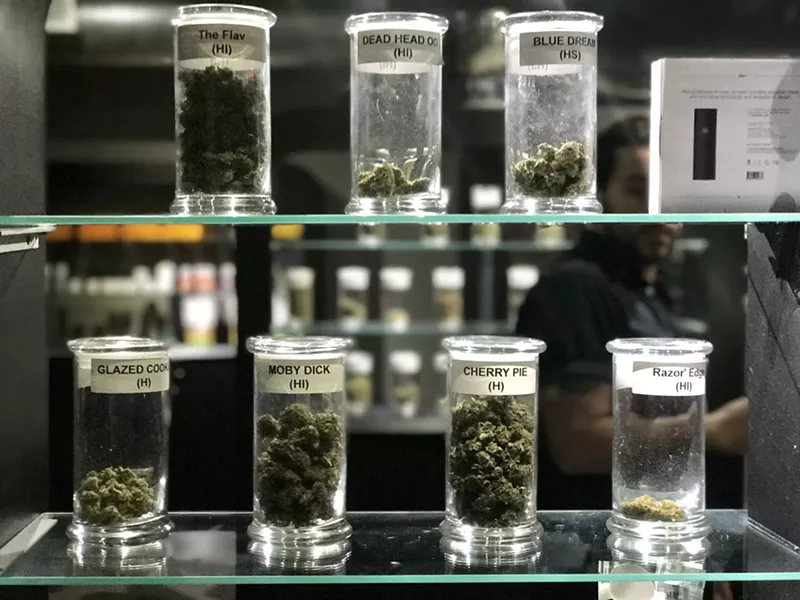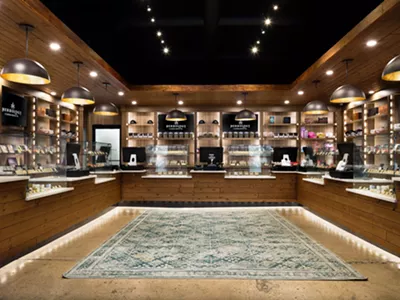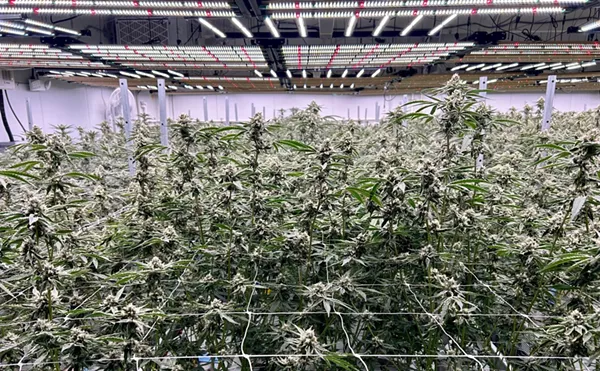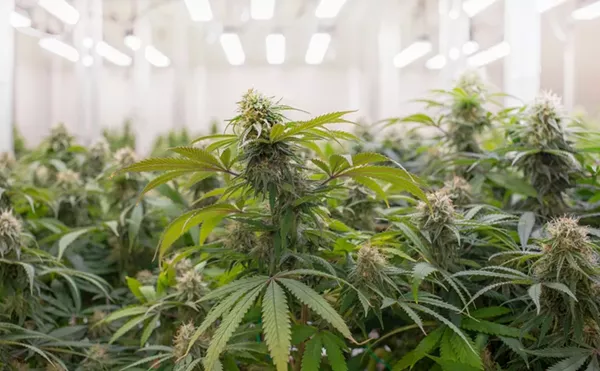
Audio By Carbonatix
[
{
"name": "GPT - Leaderboard - Inline - Content",
"component": "35519556",
"insertPoint": "5th",
"startingPoint": "3",
"requiredCountToDisplay": "3",
"maxInsertions": 100,
"adList": [
{
"adPreset": "LeaderboardInline"
}
]
}
]

Steve Neavling
The city of Detroit’s moratorium on recreational marijuana dispensaries was extended Tuesday as the city council continues to drag its feet on creating new rules governing legal pot. Legal recreational marijuana sales have now been postponed until at least the end of March.
The council, which had more than a year to enact new rules, decided to temporarily ban recreational marijuana in November, a few days after the state began accepting applications for dispensaries, growers, processors, and testing facilities. At the time, council members pledged to adopt new rules and end the ban by the end of January.
That’s not happening now, so the cash-strapped city continues to miss out on new taxes on recreational marijuana sales.
In the meantime, the city has 528 bars and 427 liquor stores.
Councilman James Tate, who proposed extending the moratorium, said his office is meeting with industry stakeholders to develop a social equity program that will ensure Detroiters are a part of the industry.
“It’s clear that Detroit’s medical marijuana industry is overwhelmingly owned and operated by individuals who don’t live in the city and take their dollars back to their communities,” Tate said in a news release. “It’s critical that we take the necessary time now to ensure that Detroit’s impending recreational marijuana industry will properly reflect the demographic of the city it’s located in. It’s not enough for Detroit residents to simply hold security jobs or floor sweeping in this industry within our city. Meaningful and sustainable access for Detroiters has to be the goal. We have to use this legislation to identify ways to reduce the financial barriers of entry and eliminate the structural obstacles that many urban cities are seeking to resolve among communities of color. If we don’t tackle this very difficult issue now, the ability for Detroiters’ access will be harmed indefinitely. I stand firm on being deliberate and inclusive with our approach to drive equity in an industry that has displayed a lack of desire to do so thus far.”
Dozens of entrepreneurs, including lifelong Detroiters, were planning to open recreational marijuana businesses until the city council at the last minute decided to impose a moratorium on pot businesses in early November.
Six dispensaries and two grow operations have sued Detroit and the state's Department of Licensing and Regulatory Affairs (LARA), arguing they were pre-approved for licenses before the city's moratorium went into effect on Nov. 22.
If city council doesn't lift the moratorium soon, activists have pledged to organize a petition drive to let voters decide if the city should have dispensaries. State law allows voters to override recreational pot bans. Of the 36 dispensaries that are licensed to sell recreational marijuana, only two are in Wayne County. Both are in River Rouge.
It's a new era for marijuana in Michigan. Sign up for our weekly weed newsletter, delivered every Tuesday at 4:20 p.m.






